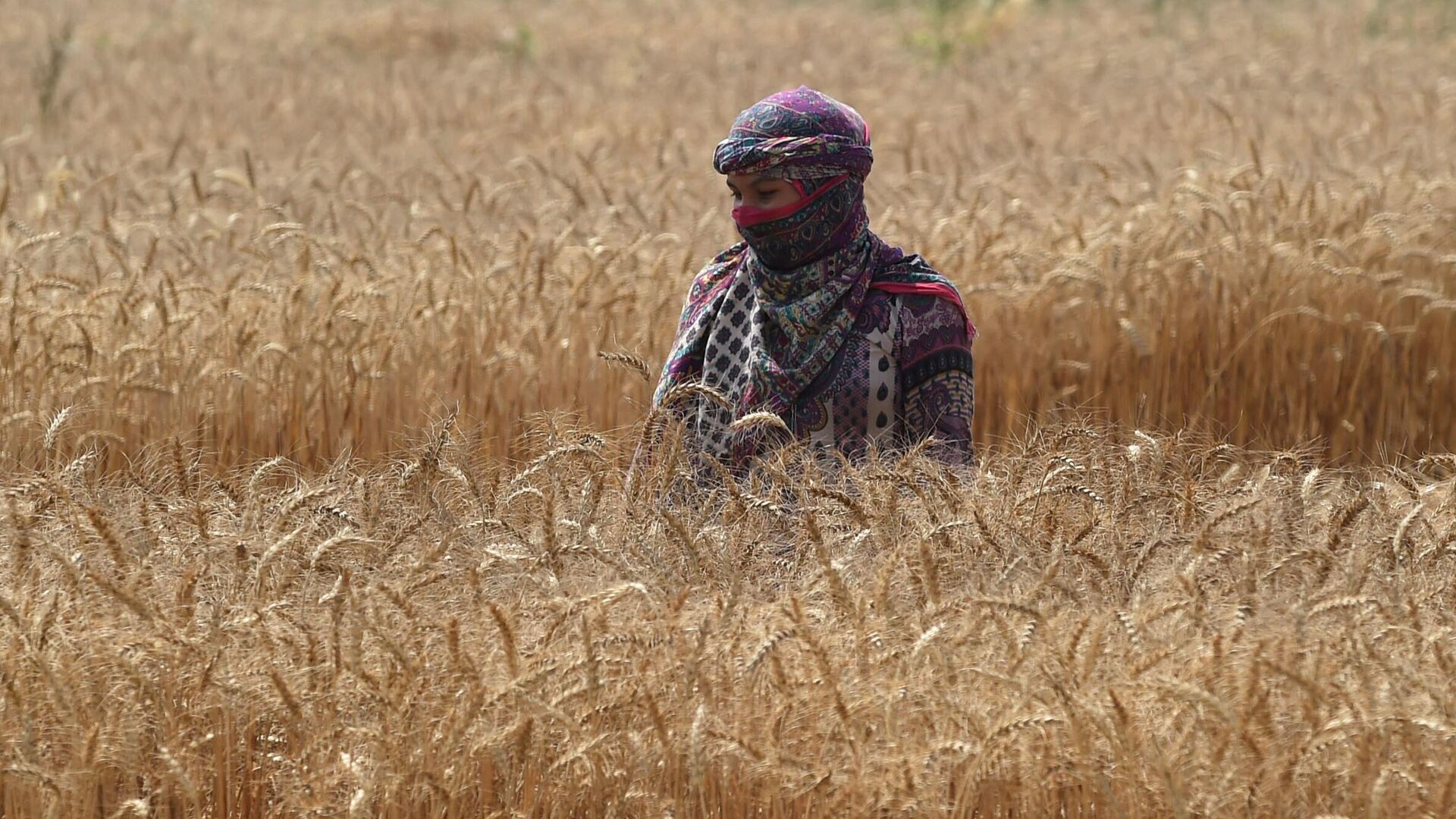https://sputniknews.in/20230110/pakistan-receives-russian-wheat-amid-national-shortages-438419.html
Pakistan Receives Russian Wheat Amid National Shortages
Pakistan Receives Russian Wheat Amid National Shortages
Sputnik India
Pakistan has received a shipment of Russian wheat amid a countrywide flour crisis caused by destruction of the wheat crop by floods and ongoing shortage of forex reserves.
2023-01-10T17:23+0530
2023-01-10T17:23+0530
2023-01-10T19:09+0530
world news
pakistan
russia
floods
shehbaz sharif
vladimir putin
wheat export
economic crisis
https://cdn1.img.sputniknews.in/img/07e7/01/0a/438817_0:0:2363:1330_1920x0_80_0_0_e0e8a3fd46534dc3d4581be2dad0b78f.jpg
Pakistan has received a shipment of Russian wheat amid a countrywide flour crisis caused by flood damage and the ongoing forex shortage.A statement by Pakistan’s Ministry of National Food Security and Research said that the two ships carrying around 300,000 tonnes of wheat from Russia docked at Karachi’s Port Qasim on Monday.Another consignment comprising 400,000 tonnes of wheat from Russia is expected to reach the port of Gwadar before the end of March, it said.The country’s Economic Coordination Committee approved the import of wheat from Russia’s state-backed organization Prodintorg in a government-to-government deal in November. Pakistan had last imported wheat from Russia in July 2020 in a similar deal.In September, Pakistani Prime Minister Shehbaz Sharif met Russian President Vladimir Putin on the margins of the Shanghai Cooperation Organization (SCO). An official statement underscored that food security was one of the key areas of discussion between the two leaders.Pakistan’s Wheat ShortagesIslamabad’s decision to import wheat from Russia was taken in the wake of devastating floods in the country earlier last year.While Pakistan had set a target of producing over 27 million tonnes of wheat at the start of last year, independent estimates suggest that floods have affected the output by eight million tonnes.In recent weeks, the price of flour across major Pakistani provinces has spiked, pushing up domestic inflation, which topped 23 percent last year.Pakistan’s Minister for National Food Security and Research Tariq Bashir Cheema, however, rejected suggestions of shortages of wheat in the country last week.He said during a press conference that the “strategic reserves” of wheat in the nation remained at “satisfactory levels”.For his part, Cheema put the onus of high flour prices in the country on provincial governments. He noted that under Pakistani law, the responsibility to control prices of essential food products rested with the provinces rather than the federal government.
https://sputniknews.in/20230103/pakistan-to-shut-markets-malls--marriage-halls-early-amid-crippling-energy-shortage-373079.html
pakistan
russia
Sputnik India
feedback.hindi@sputniknews.com
+74956456601
MIA „Rossiya Segodnya“
2023
Dhairya Maheshwari
https://cdn1.img.sputniknews.in/img/07e6/0c/13/138962_0:0:641:640_100x100_80_0_0_2cb44360dbcdf6d84bf4b299cd045917.jpg
Dhairya Maheshwari
https://cdn1.img.sputniknews.in/img/07e6/0c/13/138962_0:0:641:640_100x100_80_0_0_2cb44360dbcdf6d84bf4b299cd045917.jpg
News
en_IN
Sputnik India
feedback.hindi@sputniknews.com
+74956456601
MIA „Rossiya Segodnya“
Sputnik India
feedback.hindi@sputniknews.com
+74956456601
MIA „Rossiya Segodnya“
Dhairya Maheshwari
https://cdn1.img.sputniknews.in/img/07e6/0c/13/138962_0:0:641:640_100x100_80_0_0_2cb44360dbcdf6d84bf4b299cd045917.jpg
pakistan wheat price, pakistan wheat crisis, russian wheat, russian wheat exports, grain deal, grain deal between russia and ukraine, pakistan economy, pakistan economic situation, pakistan economic crisis
pakistan wheat price, pakistan wheat crisis, russian wheat, russian wheat exports, grain deal, grain deal between russia and ukraine, pakistan economy, pakistan economic situation, pakistan economic crisis
Pakistan Receives Russian Wheat Amid National Shortages
17:23 10.01.2023 (Updated: 19:09 10.01.2023) High flour prices have been a major factor fuelling domestic inflation in Pakistan, whose agricultural output has been hit by floods last year.
Pakistan has received a shipment of Russian wheat amid a countrywide flour crisis caused by flood damage and the ongoing forex shortage.
A statement by Pakistan’s Ministry of National Food Security and Research said that the two ships carrying around 300,000 tonnes of wheat from Russia docked at Karachi’s Port Qasim on Monday.
Another consignment comprising 400,000 tonnes of wheat from Russia is expected to reach the port of Gwadar before the end of March, it said.
The country’s Economic Coordination Committee
approved the import of wheat from Russia’s state-backed organization Prodintorg in a government-to-government deal in November. Pakistan had last imported wheat from Russia in July 2020 in a similar deal.
In September, Pakistani Prime Minister Shehbaz Sharif met Russian President Vladimir Putin on the margins of the Shanghai Cooperation Organization (SCO). An official statement underscored that food security was one of the key areas of discussion between the two leaders.
Pakistan’s Wheat Shortages
Islamabad’s decision to import wheat from Russia was taken in the wake of devastating floods in the country earlier last year.
While Pakistan had set a target of producing over 27 million tonnes of wheat at the start of last year, independent estimates suggest that floods have affected the output by eight million tonnes.
In recent weeks, the price of flour across major Pakistani provinces has spiked, pushing up domestic inflation, which topped 23 percent last year.
Pakistan’s Minister for National Food Security and Research Tariq Bashir Cheema, however, rejected suggestions of shortages of wheat in the country last week.
He said during a press conference that the “strategic reserves” of wheat in the nation remained at “satisfactory levels”.
For his part, Cheema put the onus of high flour prices in the country on provincial governments. He noted that under Pakistani law, the responsibility to control prices of essential food products rested with the provinces rather than the federal government.



